Category — Features
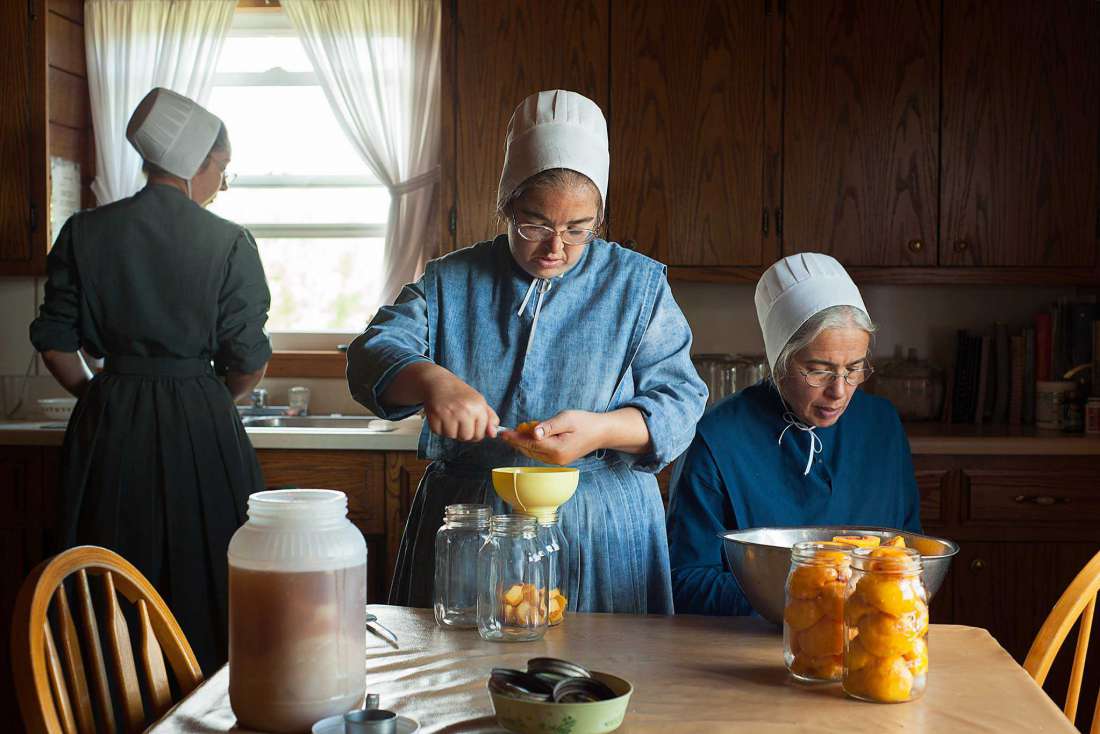
Lottie Hedley
Lottie showed up on my radar before I realised she was a New Zealander. I had bookmarked a story on one of my favourite blogs, Roads and Kingdoms, about a photographer documenting the Amish and their farming traditions – that’s the sort of story I’d like to shoot and love to read.
It sat for a while in my browser but the images stuck with me and eventually I went back to dig a bit further. By the end of the introduction it transpired that Lottie was talking to R&K from Auckland… New Zealand, just down the road. Lottie had returned from America and has subsequently taken food publishing here by storm, but I think it’s National Geographic she’s really got her eyes on.
roadsandkingdoms.com
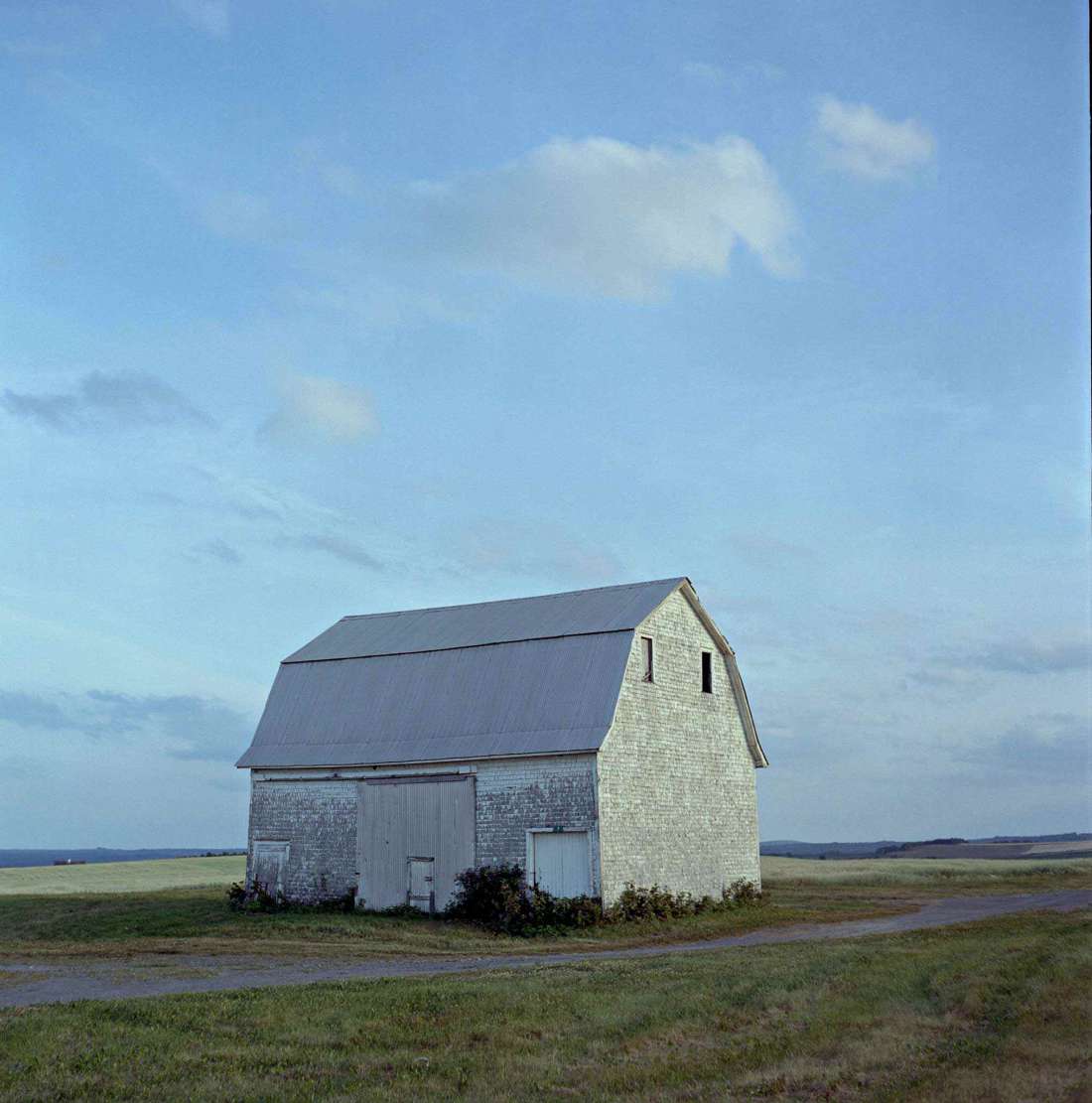
SSS – You trained as a lawyer, did you practise law?
Yes, I did three years in Wellington as a corporate lawyer and three and a bit in London and Russia until the market crashed. I’d returned to my firm in London from Russia and they were letting everyone go. In hindsight I should have taken the redundancy package but because of my ego I wanted to know I was a good enough lawyer to get through the layoffs. So I made it through and then I quit.
SSS – You quit and started to pursue photography?
Well, initially I thought I’m just going to have a year off. I’d always gone to photography exhibitions – Magnum, World Press etc. My family had a huge collection of National Geographics, which Mum amazingly let us cut things out of, which to me now… oh my gosh, please tell me we didn’t cut anything out of the Afghan girl story. I can literally remember specific images – that kind of photojournalism and storytelling really gripped me, always the human interest stories. I can remember a story in Peru and a photo by William Albert Allard where a child is standing at the top of the hill and a whole bunch of sheep have been killed. I always wondered, how is the photographer there at that moment in time, some of the herd has been killed and the kid is so upset, he’s weeping and the photographer is there and that’s fucking incredible. It’s just time, I guess, dedicating time to the story.
I’d done black and white photography in my down time when I first started law in Wellington. I’d done a weekend course and took shit photos of trees and letterboxes and all sorts of rubbish, but I loved being in the darkroom printing, I could easily let a whole weekend go by with the meditation of printing. So I have always loved photography and thought I’ll have a year off just to remember who I am again, because it’s so easy when you’re working 16 or 18-hour days for seven years to go… I don’t know who I am any more. So I decided to have a year off, my own sabbatical. That was five years ago.
SSS – You studied photography in the US, did that come out of that?
I’d always wanted to live in the States and so I just Googled ‘summer school, photography, America’ and the ICP (International Center of Photography) in New York came up. I thought, I probably can’t afford to stay in New York for very long so what else is there… what else? Maine… I don’t really know where Maine is, the Maine Media Workshops… sounds rural, I’ll go there. I didn’t really know where I was going until I got off the plane in Boston – I thought, I should probably look on a map where I’m going. I’d gone from being an ultra-uber-everything-planned lawyer to being, OK, I’m just gonna let it go for a year. I haven’t had a house for five years – it’s probably gone a little too far, to be honest.
SSS – How long were you in the States?
Two and a half years. I went for summer school for what was meant to be 12 weeks at the Maine Media Workshops and at the end of the 12 weeks… I had a really amazing class with a Texan fine art photographer called Keith Carter who was incredibly encouraging and said, “If you’re doing this 12 weeks in, it’d be really interesting to see what you’re doing after a year.” That was all the encouragement I needed not to go back to London to try to find another legal job straight away. So I stayed on at the school through the winter with six other students. It was a bit like Stephen King – massive snowstorms, creaky oil heating, frozen lakes, nothing like New Zealand.
SSS – And immersed in photography with six other people.
Exactly, out of control really. But it was amazing to have all that time to focus on making photographs. It’s weird now being out of school and trying to make a living out of it as opposed to… oh, there’s an interesting story about an orchard owner, I’m just going to go and spend 10 days with an orchard owner and see if I can make three decent pictures.
SSS – And do you think more robust stories come out of being able to spend that time?
Totally. And that’s why book projects are so much more true to what I want to do, not because it ends up in a book format but because you can really be with somebody first thing in the morning for their breakfast, if you push it you can be in their bedroom at nighttime while they’re reading a story to their kids. You can be in the moments that don’t seem immediately relevant to the story but paint a picture of who that person is and why their food or their farm is the way it is. The more authentic a picture you can paint of a person the better the story, and I think that requires time.
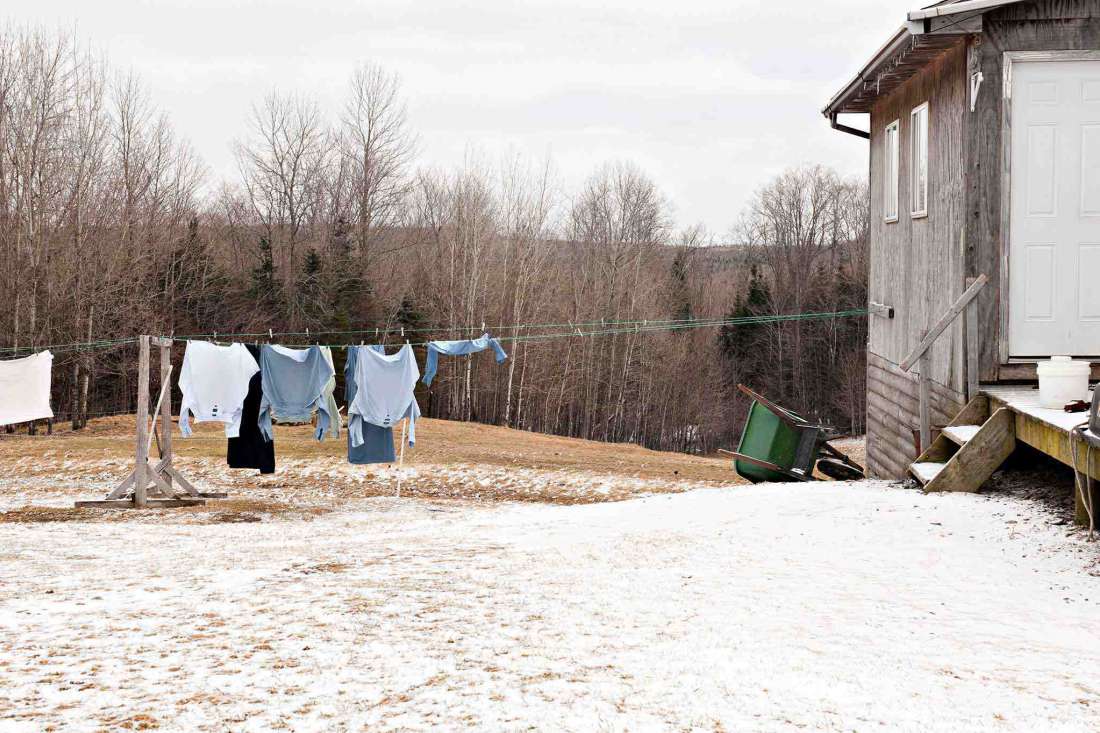

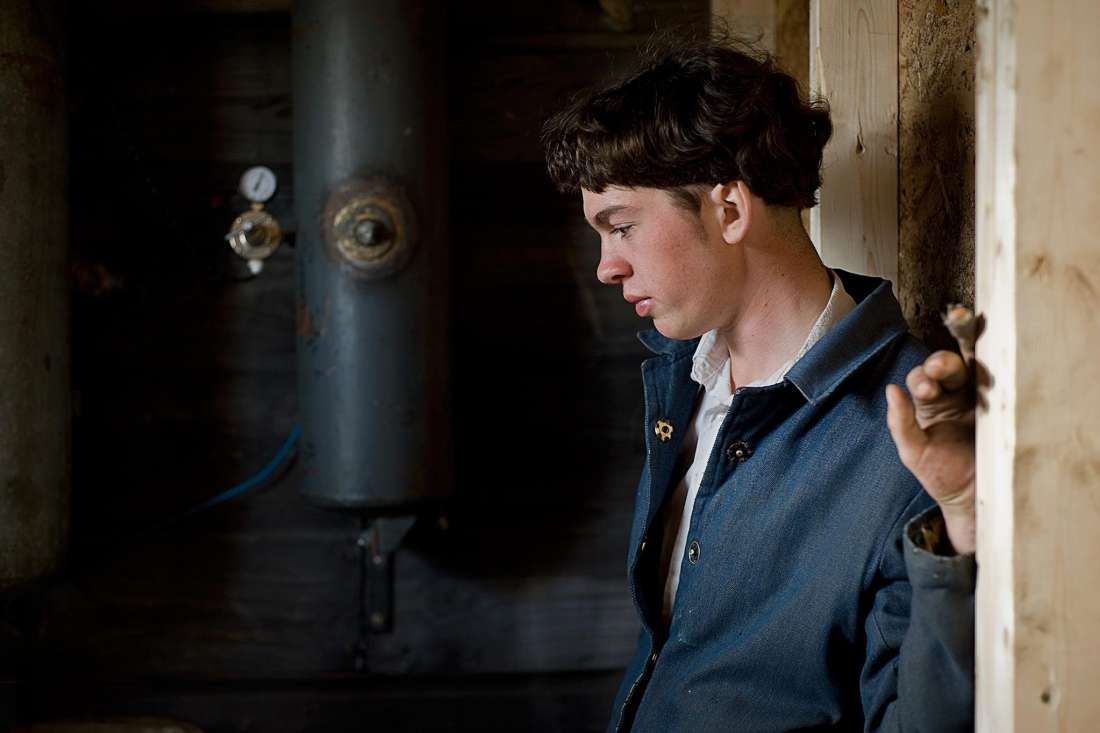
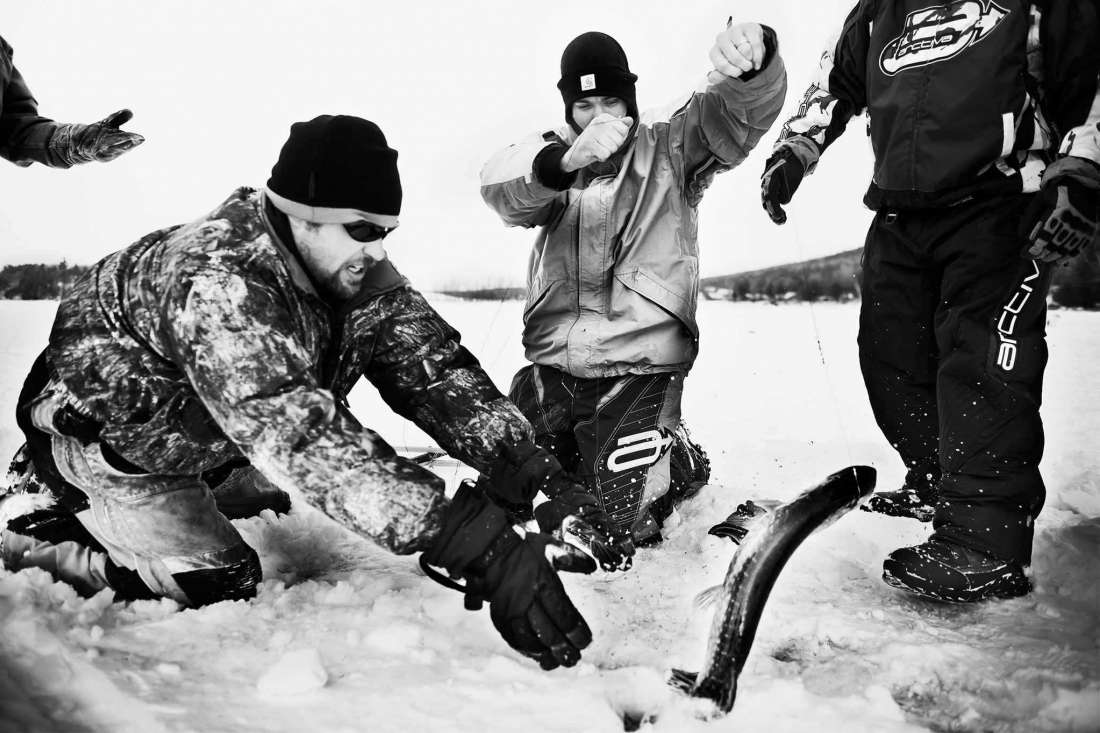
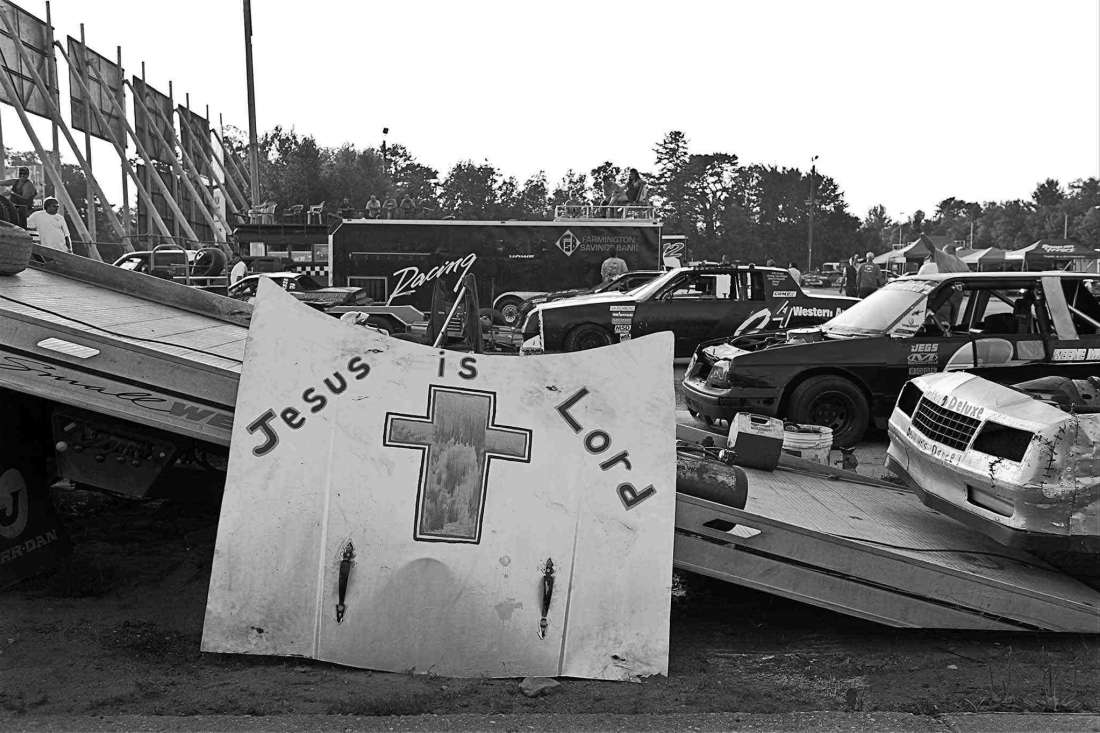
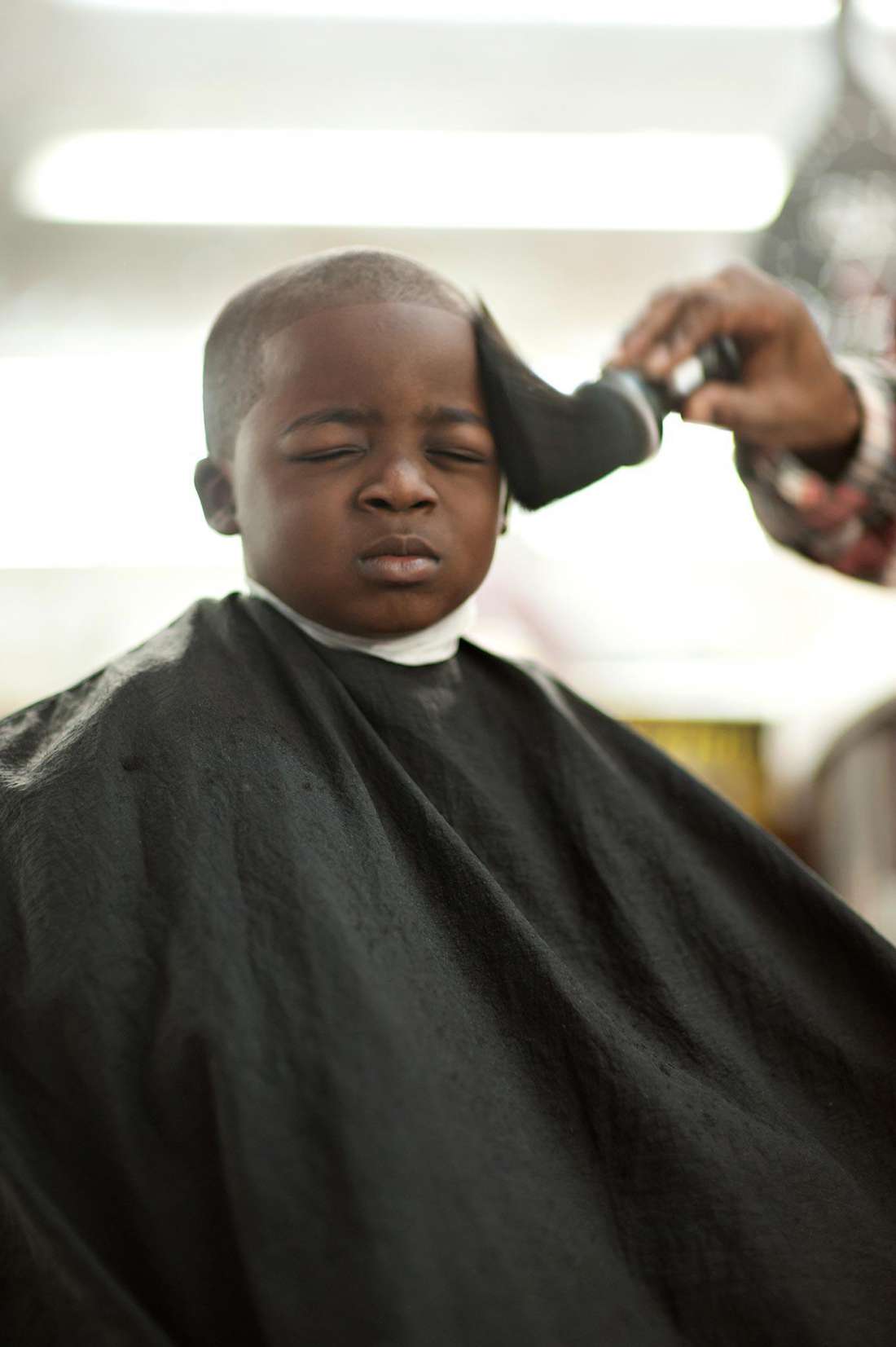
SSS – I first heard of you when I was reading about your Amish project on Roads & Kingdoms. What led you to stepping back in time with them and how did you get access?
That project was with the Hilty family in northern Maine. It came about through the first story I did when I decided I was going to stay at school. I first photographed the Gerritsen family, who farm organic seed potatoes in Aroostook County. The four-mile stretch of road where the family farms had gone from having 30 farms to three. Mechanisation had really changed the landscape and the small farms were slowly going out of business. Aroostook area schools used to have a two-week harvest holiday where the children would all stay home from school to help their families harvest potatoes. Someone had told me about it and I thought that sounds interesting, I wonder if they’re still doing that. I discovered they were phasing it out because of how big the farms were getting, how less related to the community these farms were, but I found Jim Gerritsen and his family – organic farmers who still had kids in the business, still doing lots by hand. I photographed them for two months and they would tell me about sustainability, their practices, what farming meant to them… they said they’d learnt a lot from their neighbours in the area. I asked what they meant and they said, “Our Amish neighbours teach us about cover crops and crop rotation and not planting every season and the Mennonites over there teach us this and…” I didn’t realise there were Amish farmers in Maine, it just stuck in my head. It’s a pretty harsh environment up there, I wondered what it would be like to farm without machines and in a less intensive way, so Jim (the potato farmer) introduced me. We started by writing letters backward and forwards, then they said you can come up and visit us. I visited them and at the end they said I was allowed to come back and photograph for a couple of days. After the first trip I thought… oh, I wonder if I’m allowed to come back, and then they said, “So when are you coming back?”. We decided I’d come every season so that I could see the seasons through their land and their eyes.
SSS – And was that part of your schooling?
No, that was straight after school – a project I wanted to do just for myself.
SSS – Has it had an outing? Did it result in being a published story or was it a personal project?
Yeah, a personal project, I just don’t think it’s finished yet, it’s a story about sustainability and looking after the land for future generations. But I think there are other people that can tell that story, you don’t need to be Amish and removed from technology to be careful about sustainability and making sure that children in the future are going to benefit from your actions in a positive way and not in a pillaged kind of way. So I think for me there’s probably more people to fit into that project.
SSS – Did sustainable farming drive your interest in going to visit the Amish and does it drive what you keep pointing your camera at? Or did your camera lead you to things that drove that interest?
Sustainable farming, yes… but looking after the next generation is more what I’m interested in. That’s what I was definitely interested in with the potato family, as farming becomes so mechanised – especially in America – and on such a massive scale, the people matter less, the stories around that seem to matter less and it’s more about profit and less about people and what it means in 10 or 20 years’ time what you’re doing to that land. Amy, the youngest daughter on that potato farm, was seven, and I just thought in 10 years when she’s 17, should she want to farm, if that was her direction… could she even choose that. And I thought with the Amish story, the way they care for their land and the way their community interacts and is self-sufficient means that they’re making a conscious effort to make sure it’s really good for the following generations. And there are other people who are doing things sustainably but with an economic outlet. So it’s about – are we looking forward to what our kids will reap from what we’re doing now?
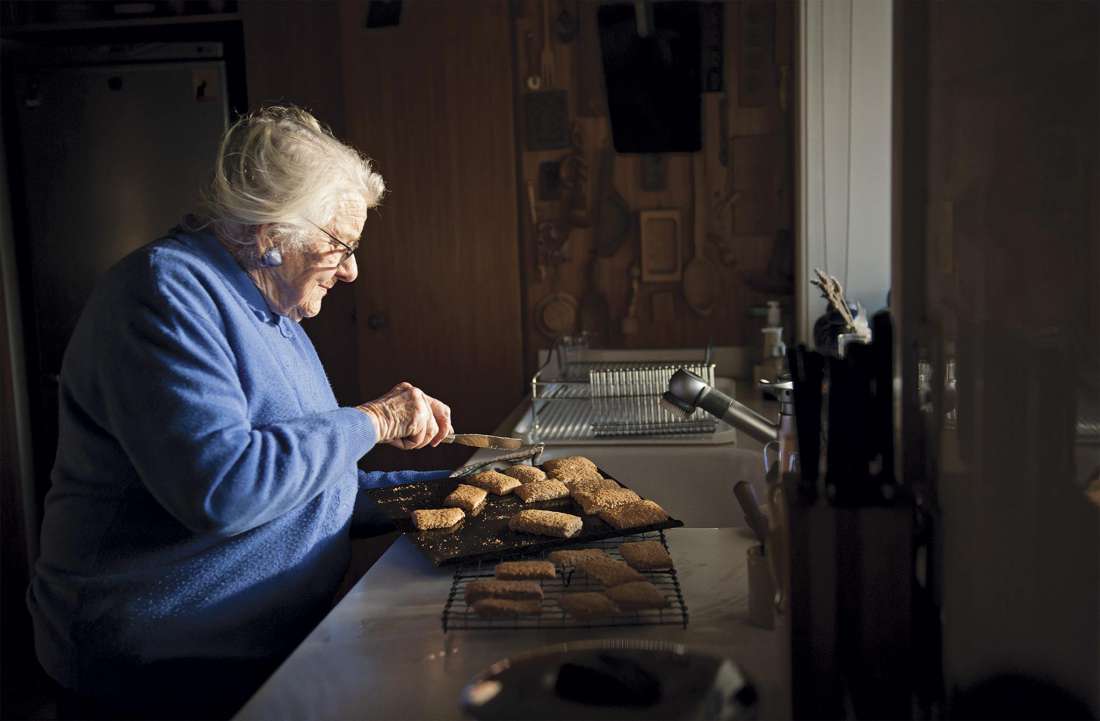
SSS – You grew up on a dairy farm in the Wairarapa. How much has that driven your interest?
Yeah, I always thought when I was growing up that I wanted to get to the city, to get away from the country and the bigger and flashier the city the better. So I went to Dunedin, then to Wellington and then off to London and I thought that then I’d go to New York. It wasn’t until I picked up a camera that I thought about what I’m actually interested in and the stories that resonate most with me. And the people that I’m most interested in are actually people with a connection to the land and community.
SSS – Do you think what you’re photographing regarding sustainable use of the land is an engagement in a movement towards a better relationship with the planet and food? Or do you think that the likes of you and I live in a bubble?
Haha, I think we live in a bubble. No, I think people are paying more attention. I was in Charleston, South Carolina five or so years ago when I first noticed people really letting you know where your food came from. There was this great restaurant called FIG and on their menu they really pointed out which farms the ingredients came from. I just noticed The Hip Group have opened up a grocer and they tell you the beetroot’s from so and so’s farm in Pukekohe and so on. I think there is definitely an interest in knowing more about where food comes from. Whether that’s a fad and whether people care enough to go to that place over going to a supermarket where it’s cheaper or more convenient, I don’t know, but I think the more people put an emphasis on where food comes from and who the people are who’re providing it and therefore, is it farmed well, is that farmer getting a fair price for it… if you can put a story or a face to that person then we’re more engaged. Any bit of engagement is useful, whether it’s just writing the name of the farm next to the beetroot in the shop or having more stories in magazines which show who the people are who’re actually putting their hands in the ground to grow the stuff that we take for granted because we get it for $1.25 a bundle at the supermarket.
SSS – You’re looking at the land and the way people treat it, but really you touch on broader human stories, beyond whether there’s a potato crop to grow for the next generation.
I guess I think that everyone has a story and if you spend some time talking to someone or being in their space then you’ll hear it and you’ll see it. I think we sometimes place emphasis on life’s big moments and the photography that fills our photo albums and our grandparents’ photo albums is often of the big birthday or wedding. I really like the vernacular photography – photography of the everyday, small ordinary moments – and I think in photography, commercially or editorially, we’ve often looked at those bigger scripted moments, but I think it’s nice to uncover the smaller things that are still big moments in people’s lives but we don’t photograph them or focus on them as much.
SSS – So over Easter you went and documented the rabbit cull in Otago for the current issue of New Zealand Geographic, also you’ve spent time down there on the project which I’m most envious of – which you seem to have developed an obsession with – which is the Bonspiel, so food is a theme but it’s not exclusive.
No, I think the main theme I’m concerned with and the work I’m drawn to is where there is a story and there is a heart to the community. If a farm working together as a family is a small community then a larger community might come together for a Bonspiel in Naseby, or a racetrack, or a quarry in Maine for swimming over summer, and the people that you might meet in that place. A place as a community or an event as a community or an actual town as a community.
SSS – While you were in the States did you shoot anything on urban farming? Because that’s something that has been re-engaging those urban communities. You mentioned that it’s easier to find that in smaller places, but it seems that again the act of getting together and putting your hands in the soil can have the same effect in a bigger place.
I didn’t, mainly because I was in a rural place, but Detroit had a really interesting story around urban farming which was in the news a lot while I was there. Areas of the inner city are just falling apart and people were coming in and using the backyards or old factory spaces and making them into urban gardens and how that was bringing parts of the community together I thought was really interesting. Or the CSAs…
SSS – What are CSAs?
Community Supported Agriculture. Where non-farmers essentially put their money/share into a farm at the start of a season and in return you receive a box of produce every week so that you can help the farmer pay their costs and share in the success (or failure) of that farm. It was very common where I was in Maine.
SSS – Have you seen any equivalents to that here?
No, I haven’t seen anything like that here. I thought there would be, but we have big market gardens, we don’t really have those really small farms like in the States. They have an agricultural heritage that is different to ours. In Maine they have a history of pioneering for self-sufficiency and didn’t necessarily need huge big plots of land, it’s nothing bigger than our lifestyle blocks. I feel like I notice a little bit more in the Wairarapa, more stories about people who have a smaller area and they’re just like “I’m going to specialise in pigs and they’re going to be really great pigs and they’re not going to be enough for me to make millions of dollars but if I can sell a few of these really good pigs to some nice restaurants and make a few products myself, then I’m doing well”, or “I’m going to have a small olive grove and that’ll be enough for me, and my partner can do something else.”
SSS – So it’s not about the maximisation of efficiencies and profit, it’s about living a particular life.
Yeah, a reasonable life, but having enough money so that you can keep it going, it’s not going to die out because you have a bad year when it’s a drought.
SSS – Do you like to cook yourself?
Yes, I like to cook from the contents of the fridge, not from a recipe, which is terrible given I photograph cookbooks. I have to follow a recipe for baking and it’s still going to fail if I’m making it. I’m much more inspired by what I can create out of what’s in the cupboards, the restriction, kind of the same as my photography. I don’t like to pre-plan everything, I like to turn up and see what’s there and what I can make from what’s in that environment. And the same with food, I like to walk around a market and be like… oh, this is interesting and this is interesting and I’ll take these figs and this sourdough and end up at home like, what the hell have I got here and what can I make from it. I like that kind of creativity.
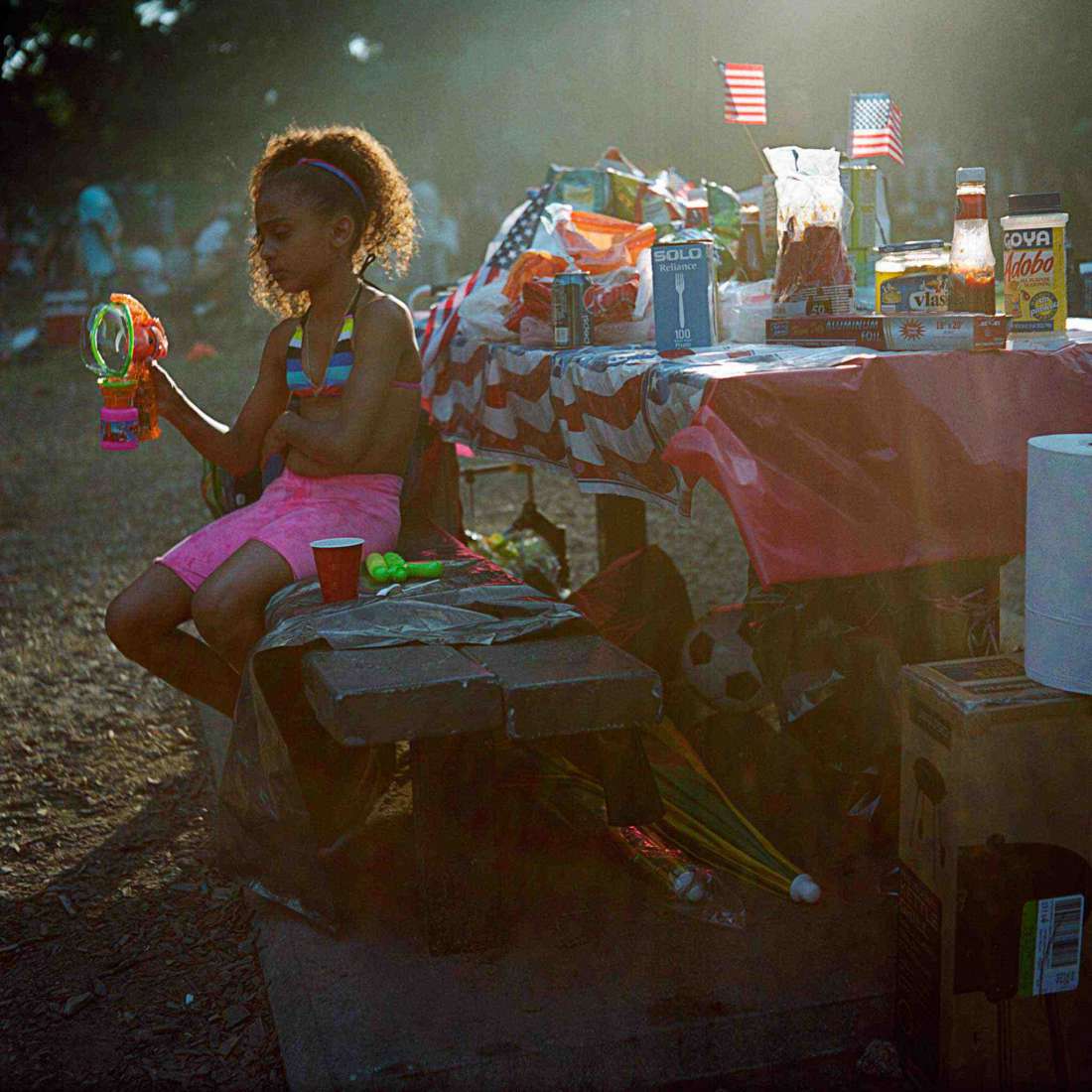
SSS – Do you ever see yourself back on the farm?
I would have said no if you’d asked me two years ago and would have definitely said NO in capitals if you’d asked me five years ago, but I like taking time out away from the constant business we all have in the city. Whenever someone asks me how I am and I say “oh, busy”, I know it is time for time out – quiet time getting away from constant technology and a list of things to do to please other people. I like the idea of the smaller community that exists rurally. I like the idea of a visible community who can see you and you can see them and you can reach out and be like “hey, I can see you need this”, as opposed to the city community where you really have to put your hand up and be “hey, I’m struggling” or “are you struggling?”, you know? You have to really call it out. Whereas I feel like a smaller community is a visible community. Unfortunately in Auckland my neighbourhood is not also my community. I don’t know anyone in my neighbourhood, it’s terrible. I’d like to have that visible community and that would drive me back to a smaller place. And I’d like to have my own garden, I’d like to grow some things, I get so much pleasure as I get older from having that time. I don’t want to run a 200-cow dairy farm, I’m not smart enough to do that and I’m certainly not dedicated enough to get up at 5.30 every morning and finish working at nine o’clock at night… I did enough of that as a lawyer. But I’d like to have a little patch, my own little patch for some sweetcorn, tomatoes and some Jerusalem artichokes.